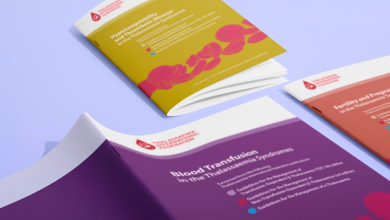WHO Issues First Global Guideline on Sickle Cell Disease in Pregnancy

The World Health Organization (WHO) launched its first-ever global guideline for managing Sickle Cell Disease (SCD) during pregnancy, marking a major advancement in maternal and newborn health .
Why This Matters
-
High maternal risk: Pregnant women with SCD face a 4–11× greater risk of maternal mortality and elevated rates of pre-eclampsia, while their infants are at increased risk of stillbirth, preterm delivery, and low birth weight.
-
Global burden: With an estimated 7.7 million people living with SCD worldwide—a 40 % increase since 2000—and 375,000 annual deaths, the disease is most prevalent in malaria-endemic regions such as sub-Saharan Africa (≈80 %), the Middle East, Caribbean, and South Asia.
What the Guideline Recommends
More than 20 evidence-based measures tailored to both high-income and low-resource settings, including:
Supplementation
-
-
Up to 5 mg/day folic acid outside malaria zones; 400 µg/day with intermittent preventive treatment in endemic regions.
-
Iron only if deficiency is confirmed, given risk of iron overload.
-
Acute SCD Management & Pain Relief
-
-
Timely use of analgesics (acetaminophen, NSAIDs, opioids) with patient-specific plans.
-
Infection & Thromboembolism Prevention
Vigilant screening for urinary and other infections; thromboprophylaxis considered for hospitalized patients and those with additional risk factors.
Prophylactic Transfusions
Considered for individuals with prior severe crises, balancing benefits and risks.
Monitoring & Delivery Planning
-
-
Fetal growth scans every 4 weeks from 24–32 weeks, then every 3 weeks until birth.
-
Delivery timing and mode based on individual risk, maternal preference, and clinical indication.
-
Postpartum & Interpregnancy Care
-
-
Specialized support up to 6 weeks postpartum, including safe medication management, newborn screening, breastfeeding counselling, and contraceptive guidance.
-
The guideline emphasizes individualized, respectful care, including shared decision-making and cultural sensitivity. It also addresses stigma and discrimination often experienced by women with SCD.
“With quality health care, women with inherited blood disorders like sickle cell disease can have safe and healthy pregnancies and births,” said Dr. Pascale Allotey, WHO Director for Sexual & Reproductive Health and HRP at the UN. Dr. Doris Chou, lead author, noted: “It’s essential that women with sickle cell disease can discuss their care options early in pregnancy—or ideally before—with knowledgeable providers,” ensuring they are prepared for potential complications.
Access the full guideline: WHO Recommendations on the management of sickle-cell disease during pregnancy, childbirth and the interpregnancy period







